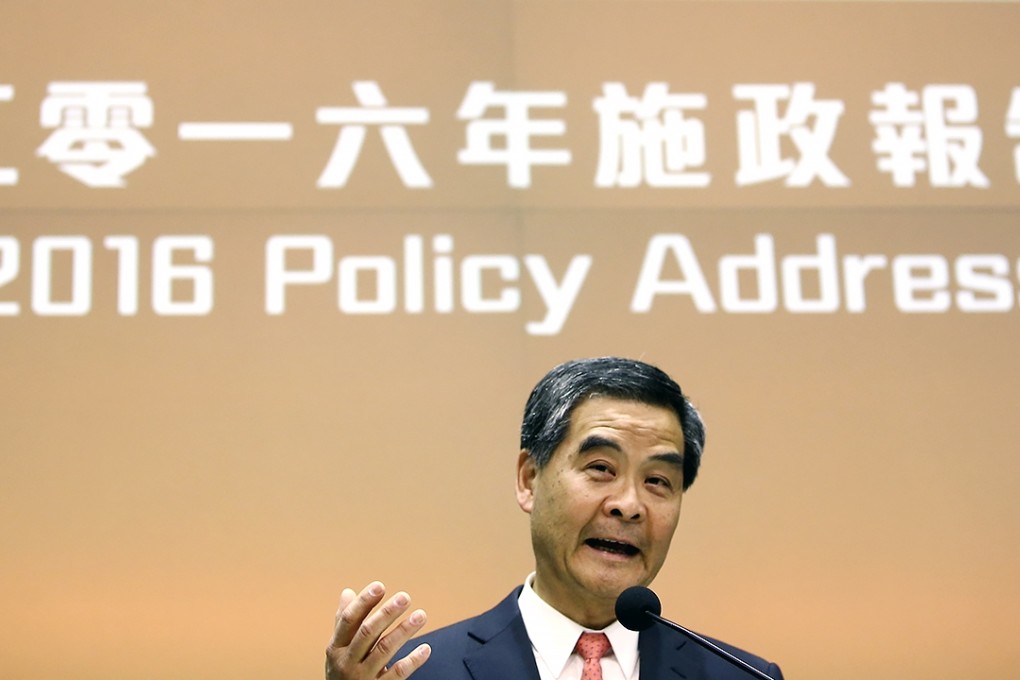Three surprises and two omissions: Leung Chun-ying’s last full-term Hong Kong policy address
Intriguingly, chief executive surprises on ‘Belt and Road’, IT and law reform, but says nothing on Lee Bo and political reform

It’s the time of year again when Chief Executive Leung Chun-ying walks into the Legislative Council chamber, gets barracked by pan-democrat lawmakers and spends about two hours unveiling his policy address. But before you yawn, this year was different because it was Leung’s last full-year address in his current term. While he will deliver his final current-term address next year, he will not be able to deliver initiatives for a full year because the chief executive election takes place in early 2017. So what are the surprises and omissions in this year’s policy address?
Surprise 1
Forty-eight times. That’s how many times the “Belt and Road” initiative appears in the policy address. While the glossy 76-page report boasts of “Innovate for the Economy, Improve Livelihood, Foster Harmony and Share Prosperity” on the first page, the Beijing-led “Belt and Road” initiative has definitely taken centre stage. Leung attached so much importance to it – indeed shortening the name from “One Belt, One Road” – that it came right after he spoke about the city’s economy and ahead of livelihood issues such as housing, education and health care. He dedicated a whole chapter to the initiative and then incorporated it in livelihood issues – for example the government will “promote Hong Kong’s tertiary education in the Belt and Road countries to recruit students for undergraduate courses in Hong Kong”.
Surprise 2
Leung wowed people in the IT sector by announcing a new HK$2 billion government matching fund to boost investment in IT. This is much more than the HK$500 million touted earlier. The money will be set aside to set up the Innovation and Technology Venture Fund, which will match private venture capital funds. And his game plan on IT doesn’t stop there. Cyberport, which houses start-up incubation schemes and co-working spaces catering to the city’s 1,600 start-ups, will provide HK$200 million to launch a Cyberport macro Fund to invest in technology start-ups. Not in the IT sector? No worries. The government will double the number of Wi-fi hot spots within three years to 34,000 in public areas including parks. Not confident about network speed and security? The existing speed in government venues will be progressively doubled and security enhanced.
Surprise 3